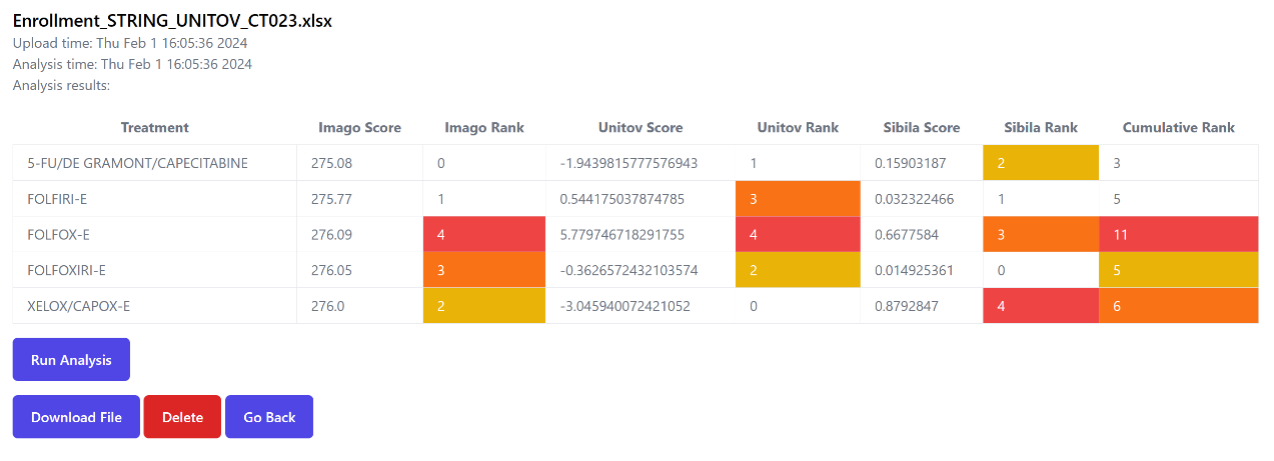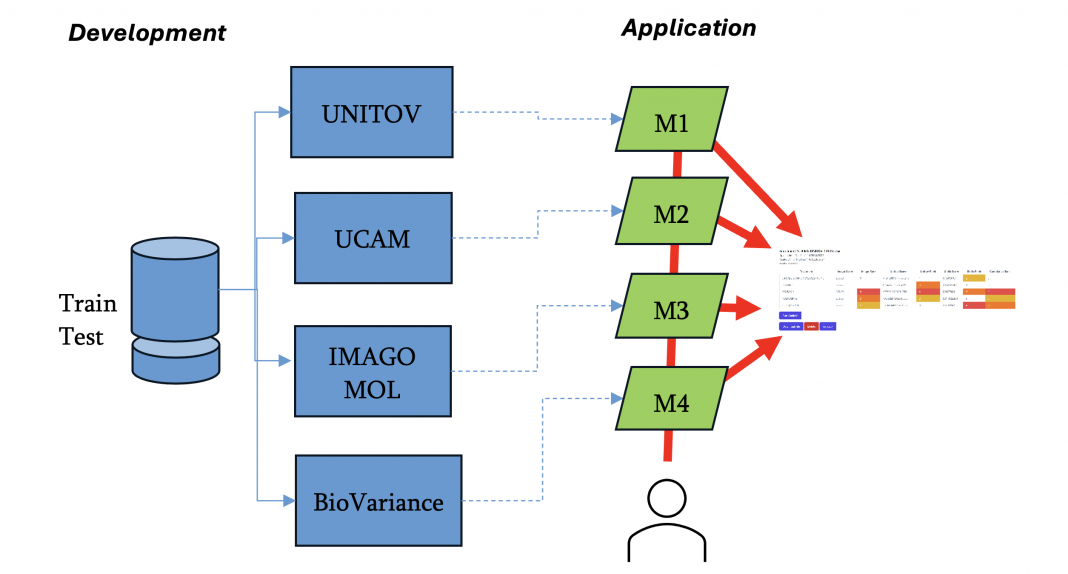Find out here about the European REVERT project, an AI-based DSS for treatment selection
The REVERT project is built around predictive medicine and artificial intelligence (AI). The Consortium includes 22 top-performing research, biobanks and clinical centres, as well as four small-medium enterprises (SMEs) from five European countries, whose expertise spans from computer science to biomarker discovery, omics sciences, and clinical oncology settings, with a shared focus on advancing personalised medicine through AI-health research and development.
An AI-based DSS for treatment selection
To this end, REVERT aims to create an AI-based decision support system (DSS) that can aid the oncologist in determining the best combinatorial treatment for patients diagnosed with unresectable metastatic colorectal cancer (mCRC) in a personalised medicine context.
To accomplish its objective, the REVERT project has collected mCRC data from various sources (clinical databases, biobanks’ datasets and real-world data) to build a dedicated database for training and testing different AI classifiers to construct the REVERT DSS.
As Professor Fiorella Guadagni, the Coordinator of the EU-funded REVERT project, explains, the REVERT Consortium has achieved a strong operational synergy among its partners, leading – among other outcomes – to the creation of a DSS that can provide insight into the patient’s response to the currently available drugs.

Multi-party, responsibility-sharing AI algorithms for a personalised therapeutic intervention
REVERT paves the way for building AI prediction systems in the field of medicine, in general, and cancer treatment, in particular. Indeed, one of the significant obstacles to the wide adoption of these systems is their opacity, which undermines clinicians’ trust in AI. Explainable AI is the current approach to gaining the trust of clinicians, and it is extremely promising.
Yet, it has an inherent limitation: it relies on a single model built using a set of data and a single algorithmic approach.
In REVERT, we defined a novel approach to gain the trust of clinicians: the multi-party, responsibility-sharing AI algorithms, as explained by Prof Fabio M. Zanzotto, Computer Scientist and Professor at the University of Rome Tor Vergata in Italy. The idea is straightforward.
Trust is built by consensus of different AI algorithms based in the four different AI centres of the project: University of Rome Tor Vergata (UNITOV), Fundacion Universitaria San Antonio (UCAM) in Murcia, Spain, BioVariance Gmbh in Tirschenreuth, Germany, and Universitatea Tehnică, Gheorghe Asachi” din Iaşi, Associate Member of the IMAGO-MOL Cluster in Romania. Indeed, whenever decisions are crucial, different AI voices are better than a single assertive AI voice.
More on an AI-based DSS for treatment selection
The AI approach to building the overall DSS of REVERT is then defined in addition to this very simple idea.
The AI DSS of REVERT consists of four different AI classifiers developed independently by the four centres and applied independently. The classifiers’ final aim is to suggest a ranked list of possible treatments for an enrolled patient. Therefore, in REVERT, we defined two novel measures to evaluate such classifiers acting as rankers of treatments: the Average Ranking Score and the Smoothed Average Ranking Score.
In the development phase, the four centres have been provided with the same set for training and testing. The four centres were free to explore any combination of features and any machine learning algorithm. We set up a leaderboard to foster competition among centres and track the models’ evolution based on different algorithms. At the end of the development phase, each centre was forced to select the best model, and that model was entered into the pool of the four models for the final DSS of REVERT realised with a secure web application.
In the application phase, clinical centres use the web application to obtain a ranked list of treatments for the enrolled patient. The ranked list is then given to the clinician, who makes the final decision on the specific treatment to give to the enrolled patient.
Clinicians’ trust in advanced AI systems for treatment selection
Through distributing responsibilities, REVERT fosters a novel method of increasing clinicians’ trust in these advanced AI systems for treatment selection.
To assess its effectiveness in helping clinicians select the best therapeutic option on a case-by-case basis, the REVERT DSS is currently being applied to patients enrolled in a clinical prospective, not-for-profit, interventional, premarket medical device “early phase” Study launched in March 2023 under the coordination of the “Tor Vergata” University Clinical Centre in Rome (ClinicalTrials.gov PRS ID: NCT05396807) and the participation of six medical oncology units from three different European countries, which results will be made available by the end of the year.

This work is licensed under Creative Commons Attribution-NonCommercial-NoDerivatives 4.0 International.


